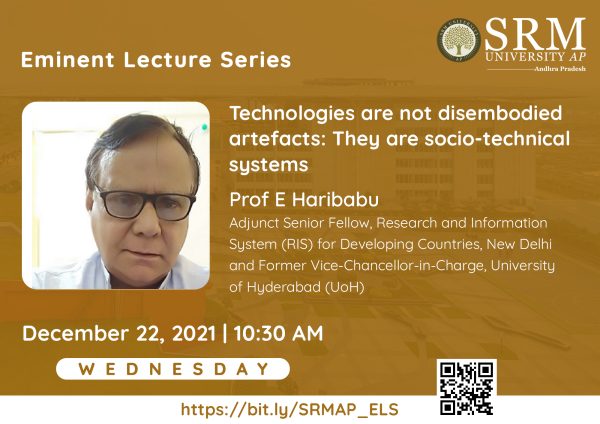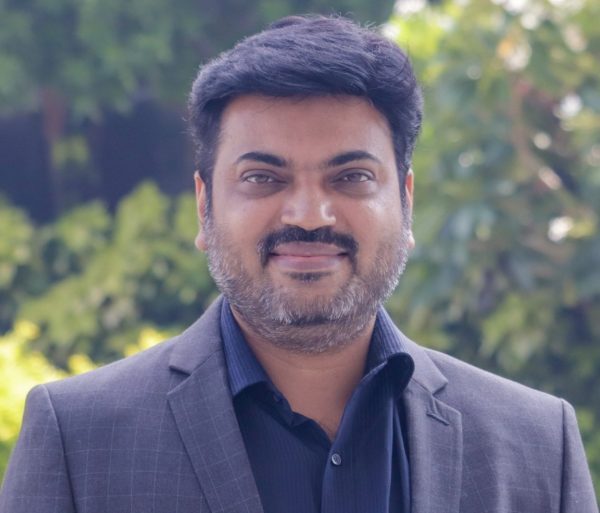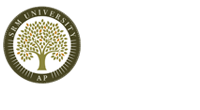Current Happenings
- Eminent Lecture Series with Prof Haribabu Ejnavarzala December 21, 2021
 Technology is deeply integrated into the human society. The Department of Management Studies invites you all to the Eminent Lecture Series with our guest Prof Haribabu Ejnavarzala, for an engaging session on the economic, social, and other impacts of new technology on our lives.
Technology is deeply integrated into the human society. The Department of Management Studies invites you all to the Eminent Lecture Series with our guest Prof Haribabu Ejnavarzala, for an engaging session on the economic, social, and other impacts of new technology on our lives.Topic: Technologies are not disembodied artefacts: They are socio-technical systems
Date: December 22, 2021
Time: 10.30 am IST
About the Speaker:
Prof Haribabu Ejnavarzala is an Adjunct Senior Fellow, Research, and Information System (RIS) for Developing Countries, New Delhi and Former Vice-Chancellor-in-Charge, University of Hyderabad (UoH).
Abstract:
Technologies are socio-technical systems. The forces that shape the development of technology are social, economic, cultural, political, and ethical in nature. A technology introduced into society has consequences for interrelated domains -social (class, caste, gender relations), economic, political, cultural, and ethical. Technologies also affect the environment- water, soil, air, and non-human forms of life. In other words, technologies are embedded in societal and environmental contexts. In order to understand the values and interests underlying the construction of technological innovation and its consequences, we have to unpack the design of a given technology and its associated practices. Technologies are intricately related to the interests and meaning structures of stakeholders. In this lecture, I focus on genetic modification of crops to show that it is a socio-technical system deeply connected with interests, sometimes conflicting interests, and meanings of relevant stakeholders – farmers who use the technology, consumers of products produced by genetic modification of crops, government, regulatory agencies, judiciary, and civil society organisations in the Indian context. In conclusion, I argue that innovations that promote equity, inclusivity and justice will have more significant social acceptability.
Please join this spirited session with our eminent guest on December 22, 2021, at 10.30 am IST for the next edition of Eminent Lecture Series.
Continue reading → - Best paper presentation award in the PRISM conference December 9, 2021
 Research at SRM University-AP is always geared to top the solutions that we have to our current problems. One of the most enduring issues in the field of management is crisis management. The PRISM conference has found one of our faculty member’s solution to be most beneficial and awarded him with the Best Paper Presentation Award. Dr Vimal Babu, Associate Professor-SEAMS, has come up with a response that will not only help leaders manage crisis situations with increasing efficiency but also make it possible for them to thrive in the face of adversities.
Research at SRM University-AP is always geared to top the solutions that we have to our current problems. One of the most enduring issues in the field of management is crisis management. The PRISM conference has found one of our faculty member’s solution to be most beneficial and awarded him with the Best Paper Presentation Award. Dr Vimal Babu, Associate Professor-SEAMS, has come up with a response that will not only help leaders manage crisis situations with increasing efficiency but also make it possible for them to thrive in the face of adversities.About the paper:
The purpose of the present research is to understand how global pandemic forces shaped the leadership communication strategies of the managers working in the Information Technology (IT) industry in India, in turn, how their leadership communication strategies aided in achieving agile and authentic leadership communication in relation to their own employees. It studied the leadership communication strategies of managers which facilitated them to establish emotional connect with the employees working remotely during pandemic crisis.
Abstract:
An investigation of the major themes in leadership communication strategies during times of crisis is presented in this research. It applies thematic analysis (TA) as a qualitative method to investigate effective leadership communication strategies in crises to overcome employee-centric organisational issues. Major themes and sub-themes are linked together to grasp better understanding about qualitative data. As a result, a total of five major themes emerged. Findings reveal that HR managers must consider the impact on their employees’ well-being when making verbal communication and crafting messages for their teams during times of crisis. The research developed a conceptual framework for mapping out the major themes, viz. information consumption and news making; disinformation and narrative disruption; agile communication structures; striking the balance b/w humane and factual communication and leadership communication imperatives. The themes generated substantive theory featuring agile and authentic leadership communication for the managers. As organisational leaders, managers’ challenges and communication strategies during a crisis are discussed. Future research ideas are highlighted.
Social Implications:
As a result of this research, it is now possible to deal with crisis communication challenges of managers more effectively. To avoid reacting to disinformation, one must be able to recognise it when it appears in abundance in a short period of time and recognise it when it does not. Managers of the HR department are held in high regard by their employees, who look to them for guidance and support. An agile communication structure, such as clearly stated goals, lean approvals and clarity of purpose will have a big impact upon the designing of communication strategies initiated by organisational leaders, especially when the attempts are made to interact with the employees remotely. That being said, managers need to strike a balance between human and factual communication in order to develop trust, transparency, and cooperation with their employees.
Collaborators:
The present work has been successfully carried out with the contributions of the co-researchers of the research paper, viz. Dr. Anugamini Priya Srivastava, Symbiosis International University, Pune and Mr. Vipin Kumar, Project Management Professional, BT India.
Future:
The future research plans entail working in the area of employee sustainability, well-being and career development of the workforce along with crisis management.
Continue reading →

